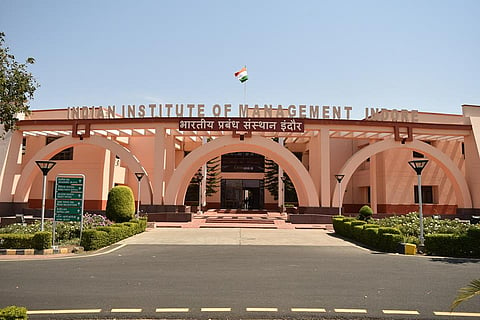
Indore/Tiruchirapalli- In a startling revelation through an RTI reply, data from the Indian Institute of Management (IIM) Indore and IIM Tiruchirapalli exposes the ongoing failure of these premier institutes to recruit faculty members from marginalized communities.
Despite the availability of positions reserved for OBC, SC, and ST categories, these seats remain largely unfilled, sparking concerns over the institutions' adherence to affirmative action policies.
According to the RTI response obtained by Kiran Kumar Gowd, President of the All India OBC Students Association (AIOBCSA), out of 150 faculty positions at IIM Indore, a staggering number of vacancies in reserved categories have been left unaddressed:
OBC Positions: Only 2 Assistant Professors have been recruited.
SC and ST Positions: No faculty member has been appointed from either Scheduled Caste (SC) or Scheduled Tribe (ST) categories.
EWS: Just 1 Assistant Professor from the Economically Weaker Sections (EWS) has been hired.
Out of the total sanctioned 150 faculty positions, 106 are filled by General Category candidates, leaving 41 positions vacant. The complete lack of SC and ST representation and the severely low count of OBC faculty raise troubling questions about diversity and inclusion within IIM Indore’s academic faculty.
The situation at IIM Tiruchirapalli is equally concerning. A shocking 83.33% of OBC, 86.66% of SC, and 100% of ST faculty positions remain vacant, even as the institute has managed to fill all General Category positions. This reflects a broader systemic issue in the recruitment process of IIMs, where marginalized communities continue to be excluded from faculty positions despite constitutional guarantees and legal provisions for reservation.
These revelations have drawn sharp criticism from various civil society groups and student organizations, who argue that this not only violates the principles of social justice but also undermines the educational aspirations of historically marginalized communities.
"This is a gross violation of the constitutional mandate," said Kiran Kumar Gowd. "Institutions like IIMs are supposed to be torchbearers of inclusion and equal opportunity, but these numbers show a stark reality of exclusion and caste-based inequality."
Despite the availability of seats and the qualifications of candidates from OBC, SC, and ST categories, the reluctance to appoint faculty from these groups reflects deeper issues of caste-based discrimination, critics say.
The lack of diversity in faculty representation has far-reaching implications, not just for social justice but also for the quality of education and representation of diverse perspectives in India's premier management institutions.
With affirmative action policies intended to bridge the socio-economic divide, the continued underrepresentation of marginalized communities in academia signals a need for urgent reforms.
You can also join our WhatsApp group to get premium and selected news of The Mooknayak on WhatsApp. Click here to join the WhatsApp group.